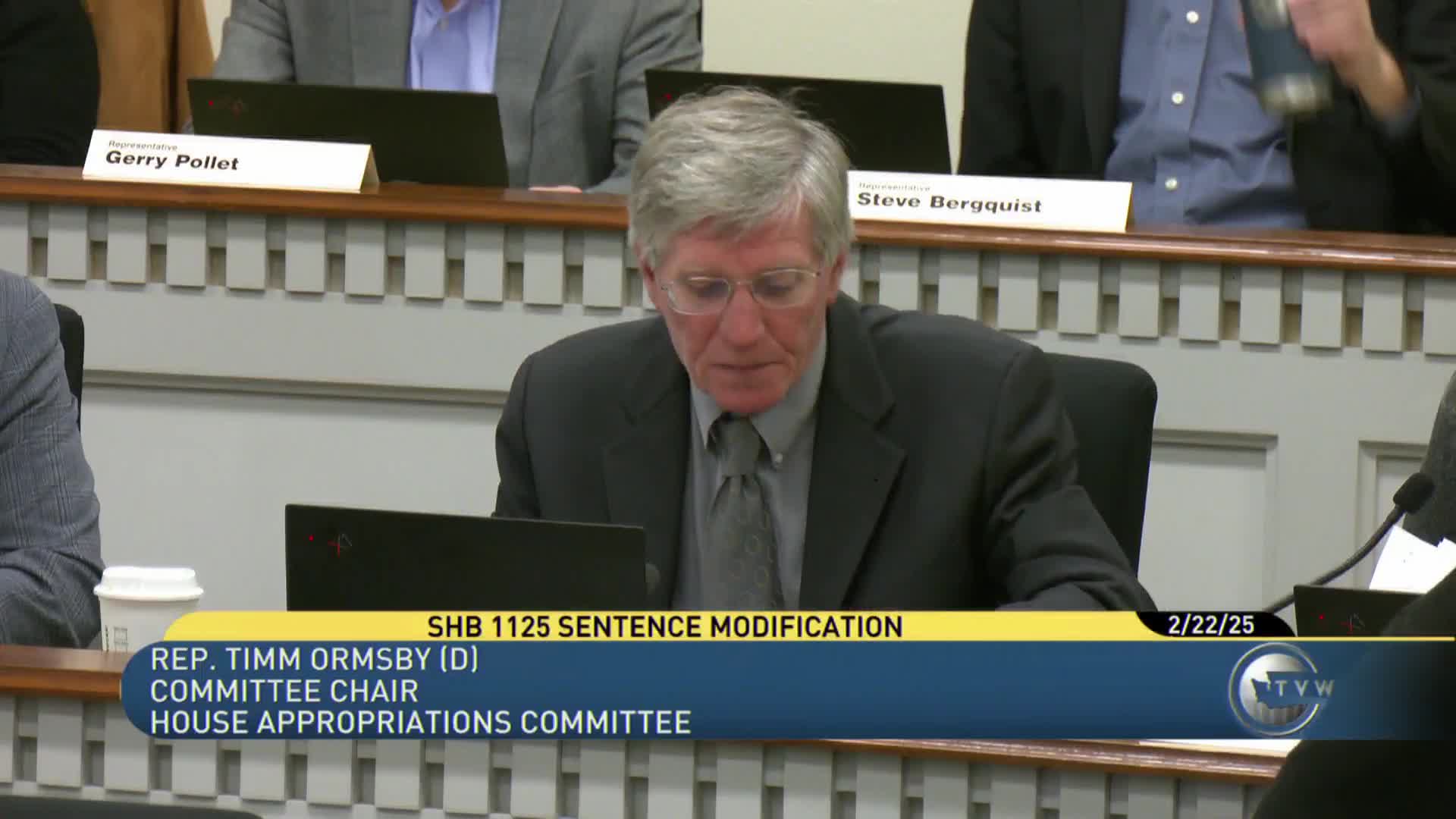Committee hears competing views on new resentencing pathways and retroactive juvenile point removal
Get AI-powered insights, summaries, and transcripts
Subscribe
Summary
Two related bills would create new resentencing routes: one establishes a phased petition process for felony resentencing and the other retroactively removes juvenile points from offender scores to allow resentencing; both drew intense support and opposition.
Two high‑stakes criminal justice measures drew extensive testimony and repeated staff briefings on procedure, eligibility and fiscal impact.
The first bill, Substitute House Bill 11 25, establishes a new petition pathway allowing certain eligible people convicted of felonies to petition for modification of their original sentences in the interest of justice under a phased timeline tied to age at offense, time served and medical conditions; eligibility expands over a six‑year rollout. The bill preserves exclusions for persistent offender life sentences and many first‑degree murder convictions; if the court grants a petition, the resentenced person must receive community custody for five years and the new sentence cannot exceed the original. The proposal also requires victim notice and support services through the Office of Crime Victims Advocacy. Staff briefings emphasized the court’s role, the prosecuting attorney’s notification duties and a standard of proof for release (preponderance of evidence that the petitioner meets standards for demonstrated rehabilitation or minimal risk of reoffense).
The second related bill, Substitute House Bill 12 74, addresses retroactive application of a 2023 legislative change that barred most juvenile adjudications from being counted in adult offender scores. SHB 12 74 would entitle eligible incarcerated individuals to petition to be resentenced with a rebuttable presumption if their offender score was raised by juvenile points that the 2023 law no longer permits. Eligibility is staggered by release date and time served; the bill includes detailed implementation timelines and requires the Office of Crime Victims Advocacy to establish flexible funds and support services for victims and survivors. Staff distributed preliminary fiscal notes showing millions in potential costs across Commerce, DOC, Office of Public Defense and courts for advocacy services, counsel appointments (subject to appropriations), training and administrative support.
Public testimony was sharply divided. Prosecuting attorneys and the Washington Association of Prosecuting Attorneys warned that the proposal is not victim‑centered, could be retraumatizing and would create significant local and county costs for handling hundreds of petitions; they urged the legislature to fund local capacity if it adopted the bill. Several crime‑victim advocates and surviving family members strongly opposed HB 11 25 and 12 74, emphasizing retraumatization and fiscal burdens on victim services at a time of federal funding cuts. Conversely, public‑defense leadership, judges and tribal representatives supported the bills as opportunities for justice, racial equity and measured second look review. Judges and the Minority & Justice Commission argued the court is the proper forum for individualized review and pointed to racial disparities in sentencing that retroactivity would help address.
Staff and fiscal analysts presented multi‑agency cost estimates and flagged administrative burdens: DOC estimated costs for tracking eligible offenders and planning resentencing; Office of Public Defense estimated millions for counsel if appointed (the OPD indicated it would withdraw its fiscal note to avoid impeding the policy debate); the Office of Crime Victims Advocacy estimated nearly $1M for victim assistance in early biennium spending. Proponents and opponents both urged additional funding if the legislature created a new resentencing pathway. The committee did not take final action at the hearing.
